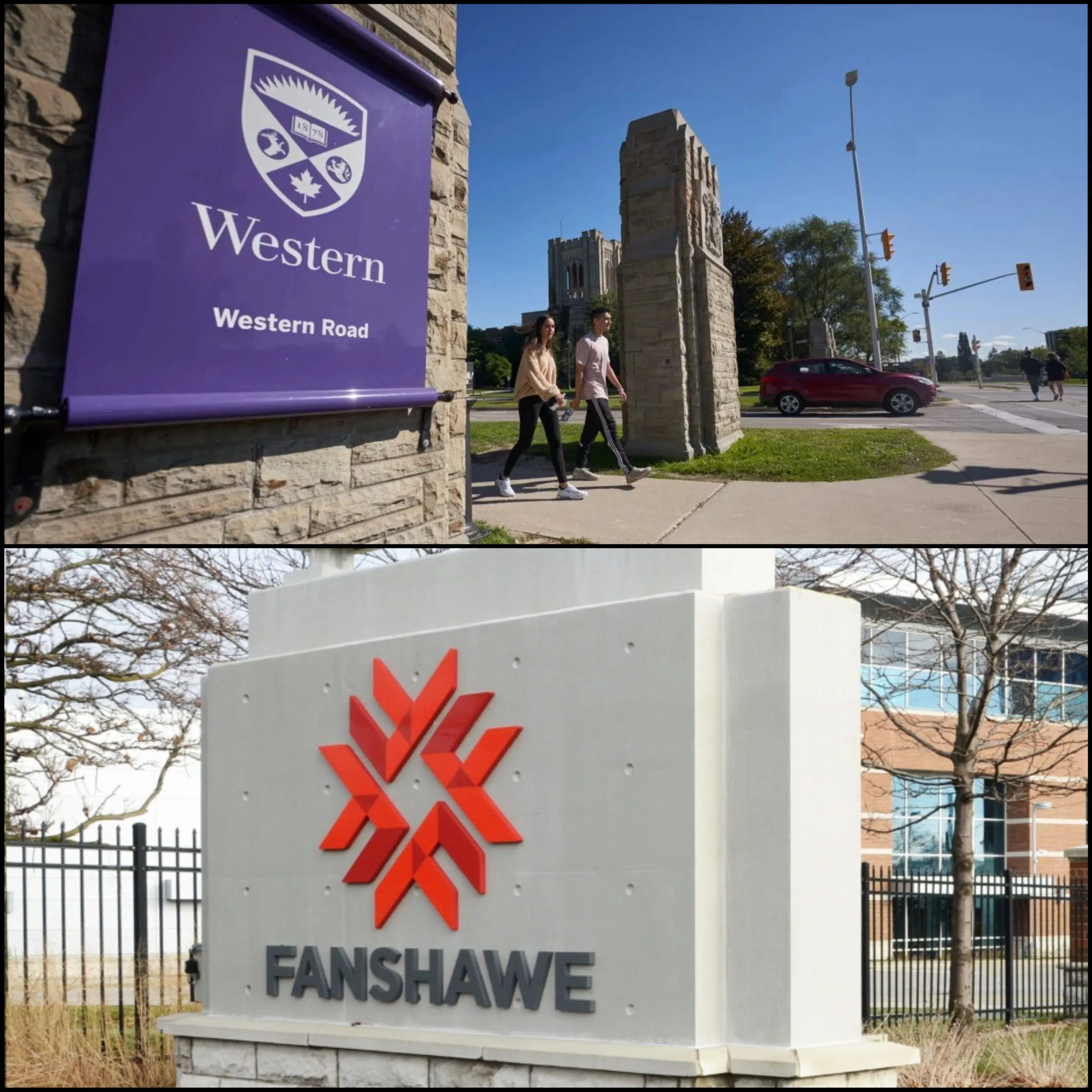
Western University and Fanshawe College square off in the debate between post-secondary institutions. Credit: Geoff Robins
Among the many options students have after graduating high school, the most popular are college and university. The age-old question of what’s better between the two still has not been answered and frankly never will, because, well, it depends on a lot of things like what program you take, how you learn and what you want to get out of it. They both have advantages and disadvantages. The main advantage college has over University are the class sizes. University and College Professor Brad Bishop describes how class size affects education.
“If there’s a smaller class size you get a better opportunity to get to know the student,” says Bishop. “By having that connection, I think it holds students more accountable. I think it helps students with their learning as well to have someone they can talk to regularly, someone that can set expectations for them. It’s like anything in life, when there’s someone checking up on us we tend to be a little bit more focussed.”
Due to these smaller class sizes, an argument that is always made for college is that you get more hands-on experience. Bishop agrees that hands-on learning is valuable for students.
“I think it’s extremely valuable,” says Bishop. “Half the jobs out there are going to be disrupted by technology and the point of that is there’s going to be increased demand for problem-solving skills.”
Although education is paramount when it comes to the college versus university argument, it’s not everything. Social life is definitely a factor. Typically, the university experience has more to offer due to more people and money. However, college student Erin Alpaugh defends college life.
“I think people just assume that university [is better],” says Alpaugh. “Everyone thinks you only get a university experience, like they don’t ever think there would be a college experience, but I think anywhere you go, you can find friends and people with similar interests.”
The last part of the puzzle is of course, tuition cost and the value of each type of education. The average cost of first year at Fanshawe College is $13,809, while the average cost of university is close to $20,000 per year. Although tuition is program-dependent, one could argue that you get more “bang for your buck” by attending college. However, usually a university degree carries more merit than a college diploma. It’s hard to say one is better than the other, so for now, the age-old debate rages on.















Comments